Broccoli, quinoa, blueberries, wild salmon, kale…these are just a few popular superfoods from different parts of the world, offering a wide range of health benefits. Fortunately, we have our own locally grown, nutritionally superior foods in Malaysia too.
 1. Ginger
1. Ginger
Whether you are using it as a cooking ingredient or a healing herb, ginger is an ordinary rhizome with extraordinary ‘powers’. For starters, ginger can instantly spice up bland-tasting dishes. Cooking aside, it is also a health-boosting plant that provides a range of health and wellness benefits, from relieving nausea to improving skin, hair, and nails. Ginger is also known to increase metabolism, support weight loss, and boost immunity. A versatile herb, it is often used as a pain relief remedy. Recent research has also found that ginger can potentially prevent colon cancer.
 2. Turmeric
2. Turmeric
For centuries, turmeric has gained a strong foothold in traditional medicine as an effective remedy for relieving pain and inflammation. Rich in iron, manganese, potassium, vitamins C and B6, this golden-yellow spice also contains powerful antioxidants that can help alleviate many types of diseases like heart issues, arthritis, and gastrointestinal problems. It is also used as a beauty remedy to promote healthy skin and hair. Research shows that it has anti-inflammatory and antioxidant effects on obesity as well, making it an excellent complement to a healthy weight loss diet. In addition, it has also been shown to improve respiratory infections, allergies, and depression.
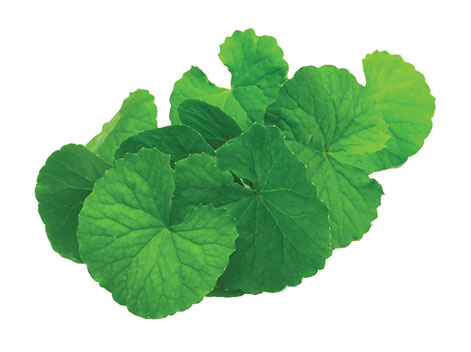 3. Pegaga
3. Pegaga
Pegaga, as it is commonly called in Malaysia, is a quaint perennial plant that is often used as a culinary vegetable as well as a medicinal herb. In other parts of the world, it is known as Gotu kola, pennywort, or by its scientific name, Centella Asiatica. It is recommended by the World Health Organization (WHO) as one of the most important medicinal plant species to be conserved and cultivated. In Malaysia, it is commonly consumed as a vegetable (ulam) among Malays and used during confinement to enhance the health of new mothers. According to research, pegaga offers positive outcomes in the treatment of bronchitis, asthma, excessive secretion of gastric juices, dysentery, and kidney problems.
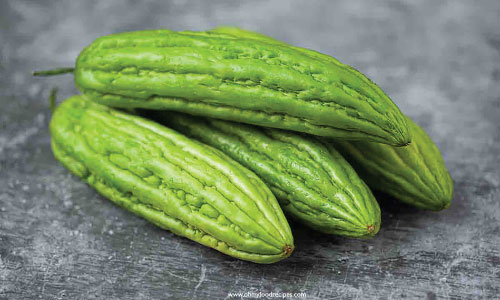 4. Bitter melon
4. Bitter melon
Bitter melon, also known as bitter gourd, balsam pear, or karela, is a widely consumed vegetable in Malaysia. While it is not all that appealing to our tastebuds because of its bitter flavour, it has many significant health benefits that make it one of the most essential superfoods to include in your daily diet. The plant consists of three primary substances that offer anti-diabetic properties to help lower blood glucose levels. It is also used in traditional medicine to treat cough, skin conditions, burns, and period pain. In a study by Saint Louis University in the US, bitter melon extract demonstrated the ability to kill breast cancer cells and prevent them
from metastasising.
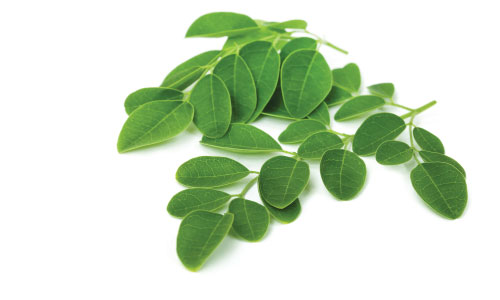 5. Moringa
5. Moringa
With its fragile branches and odd knobby appearance, the moringa plant doesn’t look at all impressive. However, don’t judge a moringa by its looks because this puny plant is incredibly rich in nutrition thanks to a variety of essential phytochemicals present in its leaves, pods, and seeds. According to scientific research, moringa offers seven times more vitamin C than oranges, ten times more vitamin A than carrots, 17 times more calcium than milk, nine times more protein than yoghurt, 15 times more potassium than bananas, and 25 times more iron than spinach. Studies also show that moringa can help heal both Type 1 and Type 2 diabetes, protect and improve brain function.
Superfoods are foods that contain high amounts of nutritional content. However, they are not a magic bullet or a cure-all, and therefore, must always be consumed as part of a healthy and balanced diet.
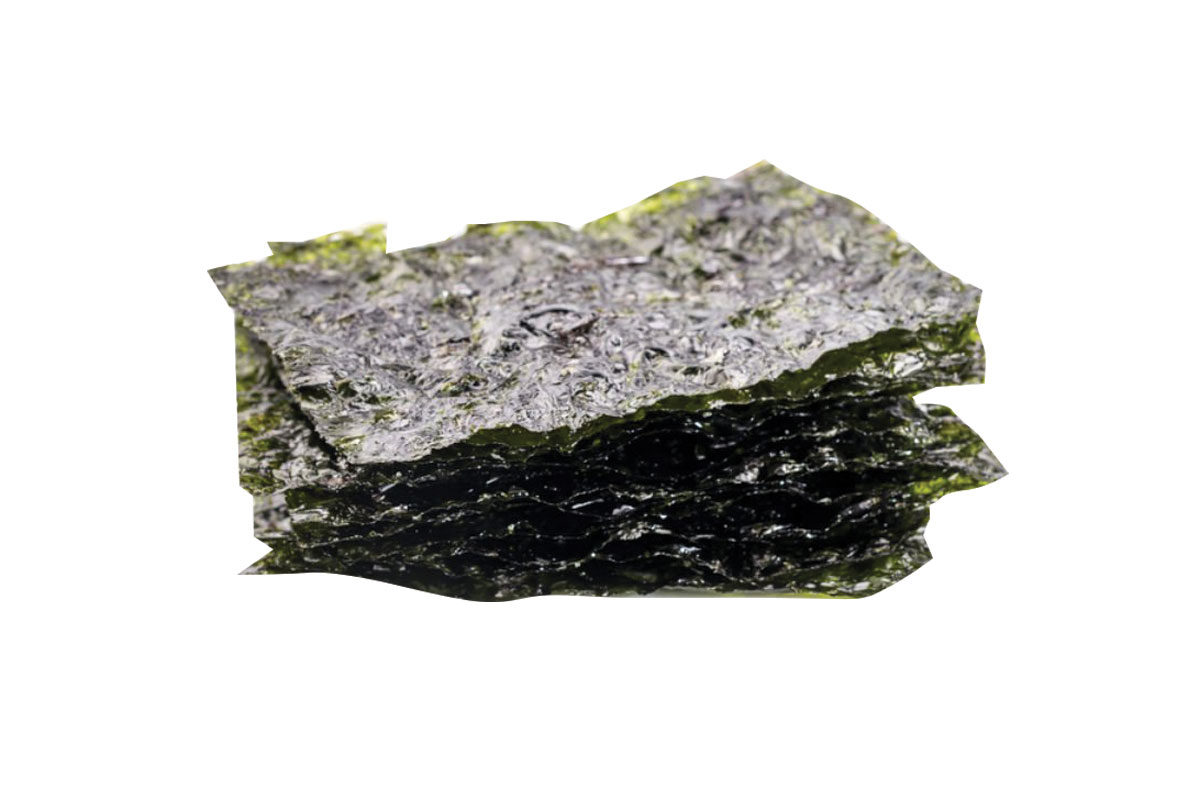 6. Seaweed
6. Seaweed
Seaweed is commonly used in Asian dishes to uplift flavours and enhance the overall appeal of various dishes. It is also a popular snack or side dish. However, it is more than just a garnish or an appetiser, as these sea vegetables, which are classified as algae, contain high nutritional content, including fibres, proteins, omega 3 and 6 unsaturated fatty acids, vitamins, and minerals like calcium, copper, iodine, iron, magnesium, manganese, molybdenum, phosphorus, potassium, selenium, vanadium, and zinc. As it offers low caloric input, seaweed also helps with weight loss. In Malaysia, the main cultivated seaweed species are Kappaphycus alvarezii (elkhorn sea moss) and Eucheuma spinosum (red algae).
 7. Kelulut honey
7. Kelulut honey
Did you know that honey produced by stingless bees found in Malaysia is a highly nutritious superfood? Known as kelulut honey, this local honey species has been reported to possess stronger antioxidant activity and higher phenolic content. It can also be used to treat various medical conditions due to its anti-bacterial, anti-fungal, and anti-cancer properties. While it is sweeter than sugar, this sweet-sour honey has minimal sugar content and a lower Glycemic Index (GI) than manuka honey.
Excessive consumption of any types of food can cause more harm than good – no matter how many nutritional benefits they provide. Moderation is key to ensuring a health – boosting diet.
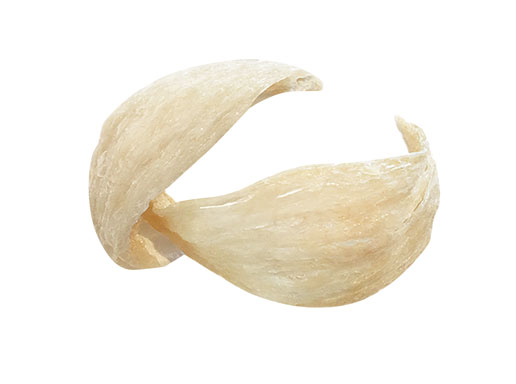 8. Bird’s Nest
8. Bird’s Nest
Touted as the “caviar of the east,” edible bird’s nest is one of the most prized delicacies in the world. It’s easy to see why: many studies claim that bird’s nest has many nutritional elements ranging from skin-enhancing components to immunity-boosting properties. This nutrient-rich superfood has also been proven to contain essential amino acids (protein), carbohydrates (high-fibre), and minerals like calcium, sodium, iron and potassium. It is regularly used in Traditional Chinese Medicine to enhance health and ease cough and flu symptoms. It is also often consumed as a beauty food by Asian women to maintain a youthful appearance and rejuvenate skin cells.
 9. Palm oil
9. Palm oil
Widely grown in Malaysia, palm oil is packed with heart-healthy fatty acids and essential vitamins. Thanks to its balanced ratio of unsaturated to saturated fatty acids, it supports healthy blood cholesterol levels. According to the Malaysian Palm Oil Council (MPOC), palm oil is extracted from the flesh using an exclusive technology that maintains the plant’s carotenoids and vitamin E as well as supplies fatty acids and other important fat-soluble micronutrients. In addition, solid fats made from palm oil are better for health as they do not have to go through hydrogenation, which is known to cause cancer.
 10. Durian
10. Durian
Thorny and pungent, durian is not the most appetising fruit around – for most people anyway. For durian lovers, you’d be glad to know your acquired taste for this exotic fruit with its creamy texture and intense aroma offers various health benefits. Durian is a dietary source of potassium that plays a vital role in maintaining blood pressure levels. It is also rich in minerals like iron and copper to support bone health. This sumptuous fruit is also an energy and mood booster. Thanks to its high potassium content, durian can help you beat afternoon slumps and relieve anxiety. Additionally, it contains tryptophan, which breaks down into serotonin – a chemical substance that makes you feel happy and relaxed.
Before incorporating any supplements or superfoods into your diet, talk to your doctor to ensure they are safe for you.


